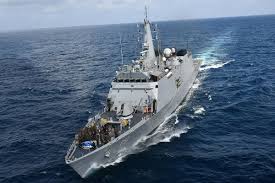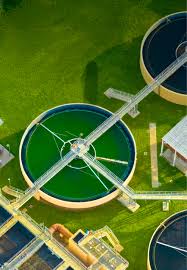Today’s Current Affairs: 25th March 2025 for UPSC IAS exams, State PSC exams, SSC CGL, State SSC, RRB, Railways, Banking Exam & IBPS, etc
Table of Contents
Black Sea:

US-Russia talks in Saudi Arabia on Ukraine war and Black Sea ceasefire
- US and Russian officials are engaged in diplomatic talks in Saudi Arabia to advance a broader ceasefire in Ukraine and negotiate a Black Sea maritime ceasefire.
- US President Donald Trump has intensified efforts to broker peace, holding prior discussions with Ukrainian officials in Riyadh.
- The Black Sea ceasefire agreement aims to restore free navigation for shipping, although it has not been a major military flashpoint in recent months.
- The talks are taking place amid continued Russian missile strikes on Ukraine, including a recent attack on Sumy that injured 65 people, including 14 children.
- Black Sea is A large inland sea situated at the southeastern extremity of Europe it is One of the marginal seas of the Atlantic Ocean It Covers approximately 436,000 square kilometers (168,000 square miles).
Vikramshila University: In News

A decade after Nalanda University came up in the foothills of Rajgir, work is on to revive another ancient centre of learning in Bihar — Vikramshila.
- The Archaeological Survey of India (ASI) is currently developing the ancient site of Vikramshila University to boost tourism.
- The Bihar government has identified 202.14 acres in Antichak village, Bhagalpur, for establishing a Central University at the historic site.
- The project was approved by the Centre in 2015 with an initial budget of ₹500 crore, but progress was delayed due to land acquisition issues.
- Vikramshila University was situated in Bhagalpur, Bihar, along the banks of the river Ganges, making it a prominent historical site in eastern India.
- The university was established by King Dharmapala of the Pala Dynasty during the late 8th to early 9th century AD, as a response to the perceived decline in educational standards at Nalanda University.
DNA fingerprinting:

DNA polymorphisms, through STR analysis and PCR, enable forensic breakthroughs in justice (exonerations, crime-solving) and historical revelations via ancient DNA extraction.
- DNA fingerprints are widely used in forensic science, ancestry tracing, and biological research.
- A DNA fingerprint is a unique genetic profile based on STR variations. It is created using Capillary Electrophoresis: DNA fragments move through a capillary under an electric field. Smaller fragments travel faster, separating different STR patterns. The final DNA profile is unique to each person (except identical twins).
DNA polymorphisms:
- They are variations in DNA sequences among individuals, form the basis of DNA fingerprinting and are crucial for identifying individuals, solving crimes, and studying genetic relationships.
- DNA (Deoxyribonucleic Acid) is the genetic material present in almost all cells of the human body (skin, blood, bone, teeth, etc.).
- Humans have 46 DNA molecules (chromosomes):
- 23 chromosomes inherited from the father (via sperm).
- 23 chromosomes inherited from the mother (via the egg).
- Chromosomes contain genes, which carry instructions for traits like eye color, height, and susceptibility to diseases.
- DNA Polymorphisms are variations in DNA sequences among individuals.
- These genetic differences occur at specific locations in DNA and help differentiate one person from another.
- DNA polymorphisms allow scientists to determine:
- Parentage (paternal/maternal lineage).
- Genetic ancestry.
- Identity verification through DNA fingerprinting.
IOS SAGAR:

The Indian Navy is set to participate in a large-scale multilateral maritime engagement exercise with African nations, titled ‘Africa-India Key Maritime Engagement’ (AIKEYME).
- Indian Ocean Ship (IOS) Sagar is a maritime security cooperation initiative in the Southwest Indian Ocean Region (IOR).
Duration: April 5 to May 8, 2025. - INS Sunayna, an offshore patrol vessel.
- Participants: India + 9 African nations: Comoros, Kenya, Madagascar, Maldives, Mauritius, Mozambique, Seychelles, Sri Lanka, and South Africa.
- Port calls at Dar-es-Salaam (Tanzania), Nacala (Mozambique), Port Louis (Mauritius), Port Victoria (Seychelles), and Male (Maldives) are activities.
- Joint surveillance of Exclusive Economic Zones (EEZs) of Tanzania, Mozambique, Mauritius, and Seychelles.
- Training for African personnel at Indian naval institutions in Kochi, covering naval operations, watchkeeping, and security drills.
AIKEYME:
- AIKEYME stands for ‘Africa-India Key Maritime Engagement’, meaning ‘Unity’ in Sanskrit.
- Co-hosts: Indian Navy & Tanzania People’s Defence Force (TPDF).
- Location: Dar-es-Salaam, Tanzania.
- Participants: India + 10 African nations – Comoros, Djibouti, Eritrea, Kenya, Madagascar, Mauritius, Mozambique, Seychelles, South Africa, and Tanzania.
- Duration: Six days in mid-April 2025.
WEF UpLink Annual Impact Report 2025:

The World Economic Forum’s (WEF) UpLink Annual Impact Report 2025 highlights the contributions of start-ups supported through WEF’s UpLink platform in driving innovation for climate action.
Key Findings:
- In 2023-2024 UpLink-supported ventures have prevented 142,400 tonnes of carbon emissions.
- 140 million hectares of land and water ecosystems protected (nearly one-fifth the size of the Amazon rainforest).
- Additionally, they have treated 2.5 billion litres of hazardous wastewater, reducing environmental pollution, and tracked 28 million tonnes of waste, enhancing waste management efficiency.
- 2.7 million people gained access to improved water, sanitation, and hygiene solutions.
- Indian start-up Indra Water processed 1.2 billion litres of wastewater in 2024, a 243% increase from 2022.
- S4S (Science For Society) reduced 60,000 tonnes of food waste, enough to feed 2.7 million people for a month.
- UpLink platform launched by the WEF at Davos in 2020 in collaboration with Deloitte and Salesforce, UpLink is an open innovation platform that connects entrepreneurs and experts to drive the UN Sustainable Development Goals (SDGs) and scale impactful solutions.
Nagarjuna Sagar-Srisailam Tiger Reserve:

The number of big cats in the Nagarjuna Sagar-Srisailam Tiger Reserve (NSTR) in the Nallamala forest area has increased from 74 in 2023 to 76 in 2024, as per the Annual Report on Status of Tigers, Prey and Other Mammals-2024.
- It is located in the Nallamala hill ranges (an offshoot of the Eastern Ghats) of Andhra Pradesh.
- This is the largest tiger reserve in the country, spreading over an area of 5937 sq. km.
- It hosts the largest tiger population in the Eastern Ghat landscape.
- It is named after two major dams in the area, Nagarjuna Sagar Dam and Srisailam Dam.
- Two wildlife sanctuaries, namely Rajiv Gandhi Wildlife Sanctuary and Gundla Brahmeswaram Wildlife Sanctuary (GBM), constitute the NSTR.
- The river Krishna traverses through this reserve for a linear distance of around 270 kilometers.
Targeted Species-Specific Conservation:

A global study published in PLOS Biology has found that targeted conservation efforts have helped prevent the extinction of numerous animal species, highlighting the effectiveness of species-specific interventions for conservation.
- Nearly 99.3% of species that improved in the IUCN Red List category since 1980, benefitted from conservation measures.
- Out of 969 species with increasing populations, 78.3% had active conservation interventions in place.
- Species-Specific Outcomes:
- Iberian Lynx: Grew from a few hundred to several thousand individuals through breeding and habitat management.
- Kākāpō: A New Zealand parrot revived through intensive monitoring and predator control.
- European Bison: Reintroduced into wild areas in Eastern Europe after complete extinction in the wild in the early 20th century.
- India’s Species-Specific Conservation Programme:
- The Integrated Development of Wildlife Habitats (IDWH-2008) approved for continuation during the 15th Finance Commission cycle (2021–26), aims to strengthen wildlife conservation of critically endangered species in India through captive breeding, and habitat restoration with community participation.
Urban Heat Island:

The Telangana Socio-Economic Outlook 2025 report reveals that Hyderabad is experiencing increased nighttime heat stress due to the urban heat island effect.
- The UHI effect is a climatic phenomenon observed in urban areas, where temperatures are significantly higher than in surrounding rural areas.
- This discrepancy in temperature is attributed to human activities and urban development, which alter land surfaces and environments.
- It is the result of an accumulation of factors, the main ones being:
- Reduced green spaces and natural soils: Urbanization contributes to shrinking vegetation in cities (trees, lawns, etc.), resulting in insufficient shading and evapotranspiration, a process that naturally cools the air.
- Density of buildings and infrastructure: Concrete or asphalt buildings and roads store more heat than vegetated areas, thus exacerbating urban warming.
- Narrow streets and tall buildings create urban canyons where warm air is less able to circulate, amplifying the effect of UHIs.
- Heat released by human activities: Road traffic, air conditioning systems, and industrial activities generate heat, which is then trapped by greenhouse gases (such as carbon dioxide) that act as a barrier.
- The combined effect of all these factors, together with global warming and increasingly high temperatures, leads to the development of this urban microclimate.
- The term “Urban Heat Island” originates from the visual representation of temperature distribution maps, where urban areas are depicted as “islands” of higher temperatures amidst cooler rural “seas.”
- The heat of the sun is absorbed during the day, only to be released very slowly at night, which limits the cooling of the air, thus contrasting with the cooling in the outlying rural areas.
- Temperature differences at night can be as much as 12°C.
Indonesia to Join New Development Bank: A Strategic Move Towards Economic Growth
Indonesia has announced its decision to join the New Development Bank (NDB), a multilateral financial institution established by the BRICS nations. President Prabowo Subianto made this declaration during a meeting with NDB President and former Brazilian President Dilma Rousseff. This move is expected to boost Indonesia’s economic transformation by facilitating financial collaborations and investment opportunities in key sectors
P.S. Raman’s Book ‘Leo: The Untold Story of Chennai Super Kings’ Launched with MS Dhoni:
Cricketer MS Dhoni and members of the Chennai Super Kings (CSK) team made a surprise appearance at the book launch event of ‘Leo: The Untold Story of Chennai Super Kings’, written by P.S. Raman, a former vice-president of the Tamil Nadu Cricket Association (TNCA). The event was attended by notable personalities from the cricket and entertainment industries.
Indian Navy Launches Frigate ‘Tavasya’ Under Project 1135.6:
The Indian Navy has launched its second Project 1135.6 follow-on frigate, ‘Tavasya’, at Goa Shipyard Limited (GSL). The warship is designed for multi-role combat operations across air, surface, and sub-surface domains. This marks a significant step in India’s self-reliance in warship construction under the Atmanirbhar Bharat initiative.
Ashok Singh Thakur Elected as New Chairman of INTACH:
Ashok Singh Thakur has been elected as the new chairman of the Indian National Trust for Art and Cultural Heritage (INTACH) for a three-year term. The announcement was made by the Culture Ministry following INTACH’s Annual General Meeting (AGM) held on March 22, 2025, in New Delhi.
Expansion of Jan Aushadhi Kendras Under Pradhan Mantri Bhartiya Janaushadhi Pariyojana:
A total of 15,057 Jan Aushadhi Kendras (JAKs) have been opened across India under the Pradhan Mantri Bhartiya Janaushadhi Pariyojana (PMBJP) as of February 28, 2025. This information was shared by Union Minister of State for Chemicals and Fertilizers, Smt. Anupriya Patel, in a written reply in Rajya Sabha. The scheme ensures the availability of affordable and quality generic medicines across the country.




